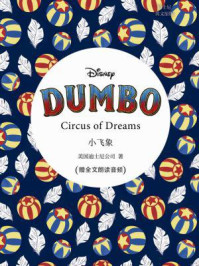




 LESSON 5
LESSON 5

Charles Dudley Warner (b. 1829,—d.1900) was born at Plainfield, Mass. In 1851 he graduated at Hamilton College, and in 1856 was admitted to the bar at Philadelphia, but moved to Chicago to practice his profession. There he remained until 1860, when he became connected with the press at Hartford, Conn., and has ever since devoted himself to literature. “My Summer in a Garden,” “Saunterings,” and “Backlog Studies” are his best known works. The following extract is from “Being a Boy.”
1. Say what you will about the general usefulness of boys, it is my impression that a farm without a boy would very soon come to grief. What the boy does is the life of the farm. He is the factotum
 , always in demand, always expected to do the thousand indispensable
, always in demand, always expected to do the thousand indispensable
 things that nobody else will do. Upon him fall all the odds and ends, the most difficult things.
things that nobody else will do. Upon him fall all the odds and ends, the most difficult things.
2. After everybody else is through, he has to finish up. His work is like a woman’s, perpetually
 waitingothers.Everybodyknowshowmucheasieritisgoodtoeatona wash the Consider what a boy on a fa dinnerthanitisdishesafterwards.istormrequired to do,—things that must be done, or life wouldactuallystop.
waitingothers.Everybodyknowshowmucheasieritisgoodtoeatona wash the Consider what a boy on a fa dinnerthanitisdishesafterwards.istormrequired to do,—things that must be done, or life wouldactuallystop.
3. It is understood, in the first place, that he is to do all the errands, to go to the ,doylsf.fedsysstheoffice an al h ha leg o Istore,topost t sort messages carr a man a a centiped
 , would tire be His t seem to theynight.shortlimbshimentirelyforewo t task. He would lik as many legs as a wheel has spo inadequatethehavekes,andtoeo t in the same way. abourotate
, would tire be His t seem to theynight.shortlimbshimentirelyforewo t task. He would lik as many legs as a wheel has spo inadequatethehavekes,andtoeo t in the same way. abourotate
4. This he sometimes tries to do; and the people who have seen him “turning cart wheels” along the side of the road, have supposed that he was amusing himself and idling his time; he was only trying to invent a new mode of locomotion, so that he could economize
 his legs, and do his errands with greater dispatch
his legs, and do his errands with greater dispatch
 .
.
5. He practices standing on his head, in order to accustom himself to any position. Leapfrog is one of his methods of getting over the ground quickly. He would willingly go an errand any distance if he could leapfrog it with a few other boys.
6. He has a natural genius for combining pleasure with business. This is the reason why, when he is sent to the spring for a pitcher of water, he is absent so long; for he stops to poke the frog that sits on the stone, or, if there is a penstock
 , to put his hand over the spout, and squirt the water a little while.
, to put his hand over the spout, and squirt the water a little while.
7. He is the one who spreads the grass when the men have cut it; he mows it away in the barn; he rides the horse, to cultivate the corn, up and down the hot, weary rows; he picks up the potatoes when they are dug; he drives the cows night and morning; he brings wood and water, and splits kindling; he gets up the horse, and puts out the horse; whether he is in the house or out of it, there is always something for him to do.
8. Just before the school in winter he shovels aths; in summer he turns the rindstone. He pg knows where there are lots of wintergreens an sweet flags, but instead ofg for them,d goin a mortar. heisindoorsandapples,andraisins,andpoundsomethingintostaystonepareAnd yet his mind f of what he would li full of withllschemeskedo,andhishandsoftou, he is an idle boy, who has nothing to busy himself with but school and chores
 !occupations,
!occupations,
9. He would gladly do all the work if somebody else would do the chores, he thinks; and yet I doubt if any boy ever amounted to anything in the world, or was of much use as a man, who did not enjoy the advantages of a liberal education in the way of chores.
【中文阅读】
查尔斯·达德利·沃纳(1829~1900)出生于美国马萨诸塞州麦斯·普兰菲尔德。1851年,他从汉密尔顿学院毕业。1856年获取资格进入费城律师界,然后搬迁到芝加哥从事律师见习。1860年,他离开芝加哥,与康涅狄格州首府哈特福德出版界联系密切,随后致力投身文学事业。沃纳闻名于世的作品包括《花园的夏天》、《悠闲漫步》和《滞压工作研究》。下列节选自他的《少年有担当》。
1. 你认为农场少年能做什么?依我看,没有少年的农场真的会非常糟糕。他们在农场生活里须臾不可少,他们是农场的闲杂总管,男女老少大呼小叫的左膀右臂。在农场里,千头万绪的事零星琐碎,最为困难的事棘手庞杂,无一例外都落到他们肩上,其他人委实无法帮忙。
2. 别人忙完了活儿,农场少年得去扫尾,有点像一直忙着为别人做嫁衣的嫁娘,总得听从他人使唤。毋庸质疑,外出赴宴享受美味大餐永远比餐后洗碗刷碟轻松太多太多。只要想象一下农场少年的活儿,那些需要做的,可又不得不做的,否则,生活将无法继续下去。
3. 首先,众所周知,农场少年得去做完所有跑腿的活计,他要跑商店、上邮局、送消息、传信件,即使他拥有蜈蚣一样的几十条腿,晚上上床躺倒前亦会累个半死。每天指望两条细腿跑路干活,看来远远不够,他们恨不得长有自行车轮毂上众多辐条般的腿,恐怕还要连轴转个不停。
4. 有时,农场少年兴冲冲地到处奔跑,旁人看来,他们骑车忙着到处乱窜,或许还有人认为,他们纯粹是玩酷一族或借此消磨时光。其实,他们不过想创造某种新型的运动方式,以便节省腿力,完成更多支派或差遣。
5. 农场少年还得练习倒立,以使自己习惯任何不拘一格的运动姿势。蛙跳行进堪称快捷走完路程的美妙方法之一。当然,能与其他几个狐朋狗友互动互乐更好,这样的话,他挺乐意四下跑腿,路再远似乎也毫不在乎。
6. 忙中作乐,对农场少年来说,似乎是与生俱来的。如果让他去泉边汲水,很长时间他都不会回来。他总会时而停留片刻,或者戳捣一番趴在青石上的青蛙。碰到木槽水管之类,他非得将手伸到木槽下,乐不可支地玩会水后才心满意足地回家。
7. 大人们割下田里的草,农场少年需要将青草摊开曝晒,还要将谷仓里干草堆成跺。他还要骑马、种玉米,上上下下,整天屁颠颠地左右逢源。马铃薯该收了,他跟着收庄稼;清晨,他赶着牛群外出放牧;黄昏,他牵着牛群打道回府;他还要拣柴、提水、劈柴、生火、喂马、洗马、拴马、遛马……家里家外,每天的事情总也做不完。
8. 冬天开学前,农场少年先要铲除路上的坚冰积雪,夏天该找出磨石磨刀霍霍。他知道哪里的鹿蹄草最多,哪里的白菖蒲最甜,不过,他可不能急着出门摘采;他还得待在家里削苹果,将葡萄干晾晒在石片上,把食材放进研钵臼烂。他满脑子装满大大小小需要做的事,手上更是根本闲不住,难道他还能游手好闲?除去学业和家里家外的繁琐杂活,他哪有心思想到自己。
9. 农场少年觉得,如果有人愿意揽下这些庞杂琐碎,他宁愿去做那些正儿八经的活儿。不过,我怀疑,如果一个少年不喜欢受益于这种干杂活的自由式教育,他将来是否能在世上找到自己可干点什么,能否做一个尽量有用之人。


